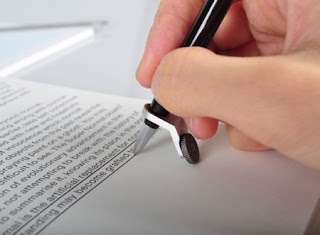The Gift Of Writer's Block
Anybody who writes knows this scenario at 1 time or another: You've something to say, fantastic ideas to express. So, you visit the page only to find your thoughts has gone as blank because the sheet or screen before you. Paralyzed, you write not a word. Someplace within the synapses of the imagination, you know there lives a totally formed novel, or story, or play, or even 1 single poem, but you cannot magnify it sufficient to see the person words. So you leave it for an additional day until your vision is clearer, until inspiration strikes and reveals all 350 pages of text, all 36 lines of poetry. Till the writer's block is gone.Occasionally inspiration does strike from out of the blue, and words pour down like rain. Suggestions synthesize, fingers fly and Voila! You've produced a masterpiece or a minimum of a pretty good piece of work.
The Gift Of Writer's Block
But such strikes of inspiration aren't, for many of us, the norm. Writing takes commitment, and good writing takes practice.Nonetheless, what about writer's block?
Even when your diligent with your practice, even when you show up day following day, you're not immune from block, from discovering yourself without two words that make any sense. What then?
First, shift your perspective on what writer's block is. It's simple to panic, to believe it indicates you'll by no means write again, that you have no actual talent or that you have nothing worthwhile to say. But none of these is near the truth.
Writer's block is not the lack of skill or worthiness as a writer. it is, instead, a signifier revealing 1 of two issues:
- There is really a truth you're not but ready to tell
- There is something more that requirements to be learned or experienced before the suggestions can be totally crystallized
Whenever you write you can't help but come up against and touch upon your own inner sore spots and the edges of your comfort zones. To write deeply you have to delve inside of and push against these, stretching, questioning and seeing increasingly more clearly. The truths you tell yourself are the markers that guide you via. When you come to a place you're not but ready to go, to words you are not but prepared to say or to some thing that is not but in focus you get stuck. Willingness to face the wall, to method it with patience, compassion, trust and honesty, will be the way via it. There's no way about it. Your blocks are gifts that push you to grow, to break through the hard locations to reach fertile ground.
Let me share an example to explain. When I was writing my novel, I discovered myself going in circles about a primary relationship within the story one in between the main character and her mentor/teacher. I would talk concerning the teacher, but I couldn't dive in to the center of her role in the novel, most specifically I couldn't find ANY words to place in her mouth. So long as she didn't speak, I was okay. But that was a problem. There came a point when I could no longer keep her mute. She had to speak. But every time I tried, I ended up sitting in front from the screen, hands poised and my insides twisting in frustration.
Lastly, I decided to obtain up and move. I went for a walk, and as my limbs fell into rhythm my mind fell in to the story. The dialogue played out in my head. Away from the pc, I could have a conversation using the characters; I could get inside them and hear what they wanted to say.
On that walk it occurred to me that I had been unable to claim the voice of the mentor prior to then simply because I had not been in a position to claim her inside my own becoming. Whenever the story demanded she speak, I'd feel the panic of putting on paper what was becoming shared as wisdom. Who was I to say such issues? Who was I to become the voice of wisdom? But just realizing what was "blocking" me, what I needed to discover, freed me. And along the way I opened doorways to my own growth.
When feeling "blocked" take a walk. Let your body move and your thoughts ease and flow. Ask yourself what you may worry within the work you're doing what truth you are not yet prepared to claim or tell. And understand that we cannot usually manage the readiness of issues. Time teaches us and directs our understanding, and our understanding directs the depth and breadth of our writing. Be patient with yourself. And keep writing.












